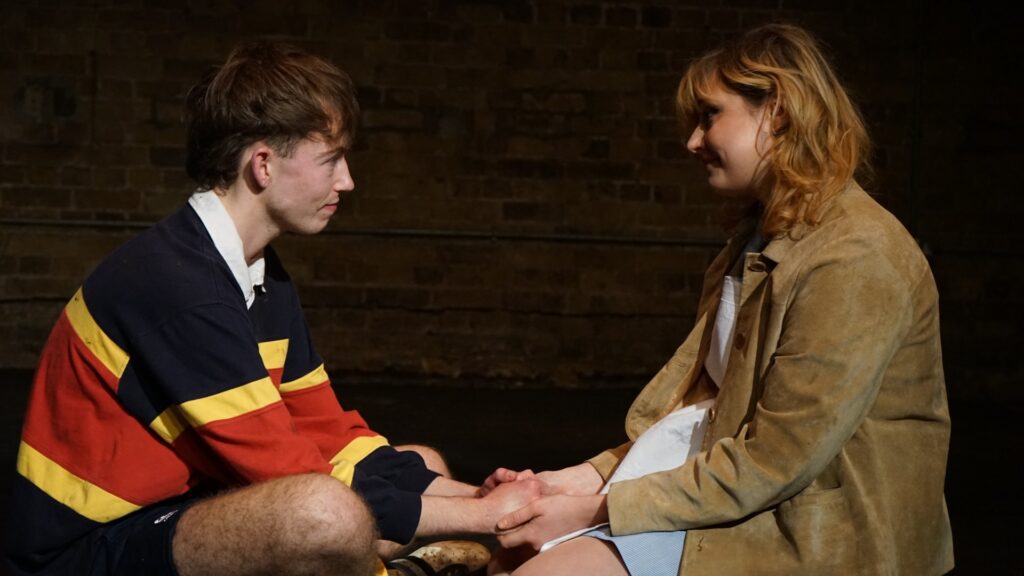Grahame Davies is proud to claim an overlooked, misunderstood identity
One of the most satisfying aspects about giving a poetry reading is getting feedback from the audience immediately afterwards. After all, anyone who believes their words are worth publishing and delivering on a public stage must have at least a degree of egotism, and I would be lying if I denied that getting a response is always gratifying.
Or almost always. On the occasion I have in mind, I had just finished a reading on the Glanfa stage at the Wales Millennium Centre – I was the Welsh-language half of a bilingual reading – when I was approached by an elderly couple. The lady had an interrogative air. She demanded from me the Welsh equivalent of identity papers – she asked me that question familiar to all of Welsh descent: ‘Where are you from?’
‘Well, I’ve lived in Cardiff for many years,’ I answered, ‘But I’m originally from the Wrexham area in north east Wales.’
She looked puzzled, and, if I was not mistaken, distinctly annoyed.
‘But nobody speaks Welsh in Wrexham,’ she said impatiently.
‘Well, I was born and brought up in Wrexham,’ I said – pleasantly, I hoped. ‘And I speak Welsh, and so do all my family.’
This was clearly not the answer she wanted. Her irritation became more marked.
‘Well I worked in the hospital there for three years, and nobody speaks Welsh.’
Clearly, the simple truth of my personal history was an inconvenient one. She seemed to think I was falsifying my biography. I decided that mere assertion would not suffice; it was time to call invoke some facts. Like many culturally-conscious Welsh speakers, I have census figures at my fingertips, like some kind of secular catechism. I adopted what I hoped was a tone of reasonableness: ‘Well actually, according to the 2011 census, 11 per cent of people in the Wrexham county borough area can speak Welsh. That’s more than 10,000 people. And in some areas of the borough, like the Ceiriog Valley, the proportions are as high as 40 per cent.’ That should have settled it.
It didn’t. Irritation became indignation.
‘But NO-ONE speaks Welsh there! she said.
This was by now becoming more than a little irritating. My identity was being denied to my face.
At this point, the woman’s husband slid into view. He had the look of a man who had to wait for his chance to get a word in, and who was going to make the most of it when he could.
‘I’m going to annoy him even more now,’ he said, with a sly smile.
The use of the third person, was, I would have to say, pretty depersonalising. He edged a little closer.
‘Wrexham isn’t even in Wales, is it?’
Looking well satisfied, he melted back into his wife’s shadow again.
Hard though it may be to believe, this man was himself a fluent Welsh speaker, from Gwynedd. Surely he must have known that Wrexham was in Wales. Why, from their two separate perspectives, were this couple at such pains to exclude someone from their approved view of what their country should be? This was one occasion where feedback was less than affirming.
Coming from the borderland of north east Wales, you get used to being mis-labelled. I was born in the village of Coedpoeth a few miles west of Wrexham, and some nine miles west of the border with England. The eighth-century earthwork of Offa’s Dyke formed the border to one side of the village in an area still known as Adwy’r Clawdd, ‘The Gap in the Dyke’, denoting the point where the A525 road, the former drovers’ pathway, cuts through King Offa’s barrier.
It was a symbolic border, a topographical border – on one side of the village was the escarpment of the Berwyn mountains; on the other the immense distances of the Cheshire plain – and, of course, it was a cultural and linguistic border too. I grew up speaking both languages: Welsh to some relatives and English to others. My espousal of Welsh became a conscious choice rather than an accident of birth when I was in sixth form college, when I made it the language of my first literary work. However, despite that commitment, I never felt the need to retrofit a Cymraeg identity to my personal history, to my name, or, for that matter, to my accent, which in English still carries the distinctive compressed vowel sounds of Merseyside, and in Welsh retains the kind of dipthongs which are more characteristic of English. I have been mistaken for a Liverpudlian by Liverpudlians; ‘Nice to see another Scouser here!’ said one of that great city’s diaspora after I had read a lesson in church one day. On another occasion, I was introduced grandiloquently to a group of Welsh speakers by a beaming acquaintance: ‘Friends, this is Grahame Davies. He has learned Welsh!’ I was later able to gently explain that despite my anglicised accent, I have always spoken the language and cannot claim the credit of having travelled the hard road of a newcomer to the ancient tongue.
Sometimes, I wonder if it wouldn’t just be easier to conform to people’s expectations. I have lost count of the number of times that I have had to explain that I come from the north Wales coalfield. Both my grandfathers worked down coal mines. One of them was working down an adjacent pit when the explosion at Gresford colliery claimed the lives of 266 victims in 1934 – the last such disaster on that scale in Britain. My great grandfather was the miners’ agent for north Wales. My mother and grandmother both worked at Brymbo steelworks, as secretary and cook respectively. I grew up to the sound of the rolling mill rumbling through the night, and the sight of the sky lighting up as the burning slag was tipped out from the furnaces onto the bank. This was industry as heavy as anything in south Wales: hard, extensive and significant. But strangely, this reality seems to be weightless when it comes to the collective psyche, whether within Wales or beyond, allowing one’s identity to be conscripted by more powerful stereotypes.
This is human nature of course: ‘… humankind / Cannot bear very much reality’, said Eliot. We do not readily accommodate unfamiliar complexities. This is nobody’s fault. I cannot be responsible for other people’s assumptions. All I can do, when the occasion arises, is to own the ambiguity of my identity – the two halves that make one whole – without simplification or disguise. And I can hope that others who do not fit pre-existing identity stereotypes – an increasing number, surely, as geography ceases to be such a defining factor, and identities become more fluid – will find a growing acceptance that complexity can be just as authentically Welsh as simplicity. So if anyone asks, I’m from a former coal-mining community in north east Wales; it is a part of the world like no other, overlooked, misunderstood, and resistant to classification – and it is an identity that I will always be proud to claim.
All articles published on Click on Wales are subject to IWA’s disclaimer.
This article originally appeared in the welsh agenda, Winter 2017.






Ardderchog.
Complexity is the key to understanding. When we reduce things to simplicities and patterns we get hideous prejudice and the treatment lately seen for the ‘Windrush generation’ … and often (and the worse for it) from well meaning people.
Poetry (and art) is the means of unlocking complexity, though not by making it un-complex. It speaks to my condition.
An unfortunate incident. but a regular occurrence on the Welsh Borderland.
“But Welsh isn’t really a language, is it?” is a phrase I often heard on the east side of Offa’s Dyke.
Seething inwardly, one smiles politely and moves on, knowing that the person who delivered the question did not want to listen to a cogent response.
The issue of English ignorance regarding the Welsh language is one with a long history. But Grahame’s point concerns the ignorance that Welsh speakers have about their own country and their fellow citizens. I have encountered a similar attitude among some that somehow they are Wales and everyone else has a marginal status to that position. I have not encountered it often but it is there. The demographic reality is that the Welsh language is spoken by a minority of the Welsh population and those who subscribe to the Eisteddfod culture are a minority within a minority. The view therefore that they represent the true Wales is not borne out by reality.
But there is another issue here which is to do with the representation of the Welsh on the television, in particular BBC Wales. North East Wales does not enjoy a particularly high profile on our screens leading to the view that somehow it is an annexe of Liverpool. I remain to be convinced that those in the Welsh media really understand this part of the country preferring to stick to the well-trodden path of Wales equalling the Fro and the Valleys.
Ken you have summed it up nicely. Unionist nationalists don’t want to listen to a cogent response, most of them don’t want to listen to any response. Too often any response is meet with ridicule and abuse. They just want everyone to accept their beliefs. Even if those beliefs are themselves ridiculous, an example being there’s a doctor and nursing shortage in Wales because doctors and nurses must speak Welsh? I think everyone will agree that’s completely ridiculous. One anti Welsh language poster attempted to prove to me that you must speak Welsh to work in the NHS by posting the general link to the WAG website, which of course contained no such statement. Such people only want to spread their corrosive anti everything Welsh and pro English sentiments. To them you cannot be Welsh and British, you can be British or Welsh and to them being Welsh means you must be anti British